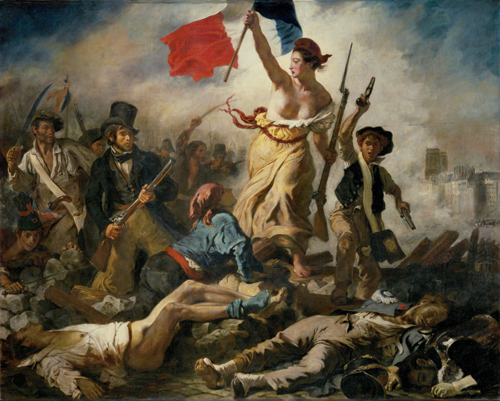Josephine’s life story plays out against the dramatic backdrop of nineteenth century French history. Born in 1866, Josephine is not spared the instability of life in France. The Franco-Prussian War, Siege of Paris, and civil uprising of the Communards, defining events of 1870-71, are formative experiences of her childhood. Insecurity, and unpredictability leave a lasting impression. They fuel her search for joie de vivre, (joy of living) finding expression in the hedonistic lifestyle of Montmartre’s Bohemian counterculture. Josephine comes of age in the “fin de siècle”, or ‘end of the century’. These final decades witness an opening of French society and a cultural renaissance, the Belle Epoque.
The hostilities which rocked Paris, following the fall of Emperor Napoleon III in 1870, were only the latest chapter in a long and bloody history. Since the Revolution of 1789 nothing in the way of peace or permanence long survived in France. Successive waves of revolutionary forces erected barricades in the streets of Paris. Amid death and destruction, monarchies, republics, and empires rose and fell.

The century dawned on post-revolutionary France defending herself against a coalition of European countries hoping to restore the French monarchy. Napoleon Bonaparte emerged victorious from the fray in 1802. He was named ‘first consul for life’ of the newly formed Republic. In 1804, confident of the approval of the French people, he engineered a plebiscite (popular vote) and declared himself Emperor. His defeat and capture in the infamous Battle of Waterloo in 1814, ended the First Empire in. He died in exile.
Monarchy under the deposed Bourbon kings was restored. The two younger brothers of guillotined Louis XVI ascended the throne, each in turn. The reign of Louis XVIII was dominated by plots, conspiracies, and power struggles. Rejecting the restraints of constitutional monarchy, he stirred dissent by dissolving the Chamber of Deputies. Despite fears of a popular uprising, Louis managed to die of natural causes in 1824.

Brother, Charles X, was not so fortunate. Beset by the erosion of his control, he issued an unpopular set of Ordonannces du Roi (ordinances of the king). They restricted the liberty of the press and the power of the (reconstituted) Chamber of Deputies. As a consequence, he was overthrown in 1830 by a bloody uprising in the streets of Paris, known as the July Revolution.
Louis Philippe, a champion of the bourgeoisie and member of the competing Orleans branch of royals, came to power. For ten years, he clung to the crown by a thread, continually challenged by demands for restoration of the Bourbon kings, or government by Republicans or Socialists. He miraculously escaped assassination, although shot at thirteen times, His efforts to crack down, silencing the press and instituting reactionary laws, resulted in his forced abdication. The aftermath was the bloody 1848 Revolution which led to the establishment of the Second Republic.
